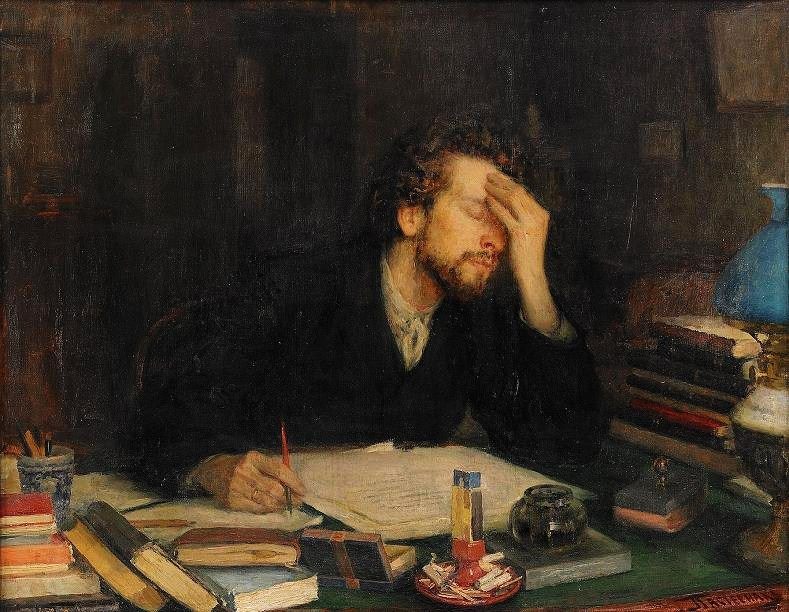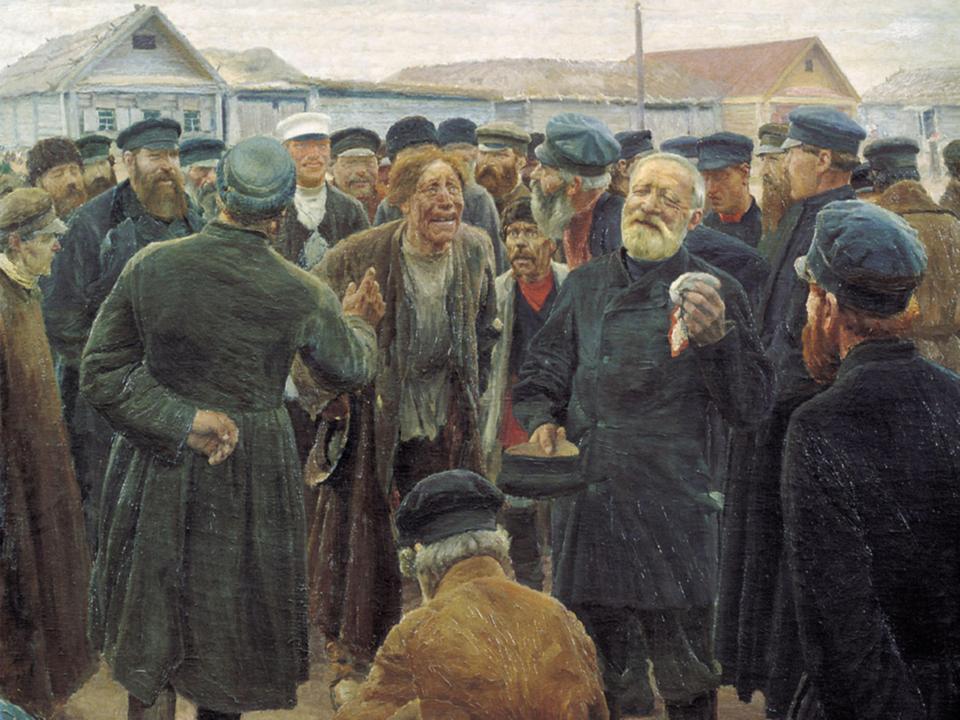…the work, proper to the human race…is to keep the capacity of the potential intellect constantly active, first for speculation and secondarily for action. (Dante, De Monarchia).
The machine culture forgot about the culture of the spirit, the spiritual. (Boris Pilnyak, The Naked Year).
It was in 1946 that Bruno Snell published his epic work, The Discovery of the Mind, in which he traced the origins of the West’s intellectual character back to ancient Greece. Thus, the Greeks discovered the mind.
The defining characteristic of the mind is self-awareness – which is that ability to stand outside of yourself and question your way to the truth.
The human being, therefore, is always independent of any predetermined condition (society, politics, religion, culture, even family), because he uses his reason to structure reality. In this way, the brain becomes the mind.
Other cultures, though much engaged in reflection (mythologized explanations of existence), did not veer into self-awareness, and thus the mind was closed to them, since they could not abstract themselves from the unfolding of life in both time and space.
Without self-awareness, without the habit of questioning into truth, there can be only conformity (mythological thinking). A culture is severely misunderstood when its reflection is taken to mean the mind. Thus no culture, other than the Greek, discovered the mind.
For the Greeks, self-awareness was further clarified into the intellect and the soul. The intellect is the source of human action, expressed through the will, while the soul is “the life of the body,” in the words of St. Thomas Aquinas, for the soul is the vital essence, which gives human beings their moral character. Each person, then, has value, because each person has a soul.
Morality…the tireless cultivation of the mind
In one fragment, the Greek philosopher Heraclitus states, “As for the soul, you shall not find its limits, though you go here and there and all over – so deep is its structure.”
The mind alone defines and describes the human being, for inside each of us is the soul. Without the soul, the mind shatters and a person is no more than a flurry of emotions.
But can the mind also perish and die? Indeed, it can. Self-awareness is not a given; it is not a gift of nature, like sunshine or rain. Rather, self-awareness needs to be cultivated by way of conversation with minds that have gone before and who have left behind a legacy of both their intellect and their soul.
Only one mind can teach another, only one soul can guide another, thus forming a great chain that links humanity back to the Greeks, the first discoverers of the mind, and the world.
And yet chains too are easily broken. Self-awareness dies off when the brain engages only in reflection and expression of emotion, which are both reactions to material things.
When the mind cannot provide the soul its language of non-material things, of greater truths (the whys of life), and of infinity – the vital essence of a human being falls silent, and the mind dies. To deny the existence of the soul is to deny the existence of the mind.
Everywhere, the shattered human being is on display
With the silencing of the soul, self-awareness collapses into self-centeredness, or self-worship. What does this mean? Very simply this – the very integrity of the human being is destroyed, because he is no longer aligned with his soul.
The mind vanishes into the brain, which is now content with expressions of emotion that pertain only to the immediacy of the mundane.
The corollary to the death of the mind is the shattered human being, who is now mindless and thus held hostage by unending emotions, whose expression and fulfillment he eagerly and continually seeks.
Life thus becomes nothing more than a grand pursuit of desire, no matter how trivial – and society exists solely to enable individual whims, which often become manias. There is no meaning in life, no truth; there is only desire, and the hunger for desire.
A shattered human being becomes an automaton that may be reconstructed into any configuration, for the body without the mind is nothing other than a machine whose function is to persist.
If there is no soul, there is no humanity – there are only technologized creatures. The haves are those who can afford mechanical add-ons to their bodies – and the have-nots are the many who must live and perish within the confines of their human frailty.
This is the sad pivoting towards transhumanism, homines ex machina, where technology is given messianic qualities (cybernetics) that it might free us at last from all our physical impairments, so that we might live forever. Is this not nihilism apotheosized?
without the habit of questioning into truth, there can be only conformity
Everywhere, the shattered human being is on display. Because the mind has died, human brain size is shrinking.
Because the mind has died, people prefer to think with pictures rather than with words (the default ability of the brain).
Because the mind has died, people stare at screens all day long without tiring, suckling new “glass teats.”
Because the mind has died, human attention span has decreased to just eight seconds.
Because of the death of the mind, children too are expected to question and then choose whatever gender they like.
Because the mind had died, education is now meaningless, and universities cannot say why they exist, or worse, why they should continue to exist? How can there be education without the mind?
Therefore, courses only serve to give students predictable emotional postures to assume, and handy slogans to loudly declaim. It is not surprising that professors themselves have no idea why they teach, other than spouting versions of self-gratifications. Or they are fearful of their students.
self-awareness needs to be cultivated
Then there is the fragmentation of what constitutes a human being – into an ideologically contrived confusion of gender, of which there are now over a hundred types. This confusion is not only socially and politically encouraged as an expression of some vaguely understood “right,” or even as an affirmation of “progress” – but this confusion also affirms the death of the mind.
Self-centeredness is the abandonment of the self to emotional slavery, for the purpose of living without a soul is to demonstrate full submission to whatever diktats are declared worthy.
With the death of the mind, the body is made into a slogan, a message, meticulously constructed for the benefit of other people’s eyes.
This “billboard body” is not only the saddest version of virtue signalling (where the individual can aspire to nothing greater than the approval of others), but such a body is also a billboard of humanity emptied of all purpose, of a humanity without a soul.
With the death of the mind, the only aspirations left are the urges to persist, consume, and hunger after the praise of others (celebrity). To live is to be “messagey,” which is nothing more than the desire for self-annihilation.
Will we come to that stage of mindlessness where the body becomes useless once it has delivered its message? Eugenics and euthanasia may be understood in this light, for both are instances of devaluing the body in order to vaunt ideology.
The discovery of the mind sustained the West for more than two thousand years; it allowed for a true civilization to flower and to spread, and this civilization was rooted in a profound comprehension of morality, that is, the tireless cultivation of the mind.
the abandonment of the self to emotional slavery
But that discovery is now lost, and the mind is dead in the West, and both social and personal life is an endless display of either diversion or sloganeering.
With the death of the mind, comes the death of the world.
Perhaps in answer to our age “full of sound and fury, signifying nothing,” Yeats said, “We had fed the heart on fantasies, the heart’s grown brutal from the fare; More substance in our enmities than in our love.” In another poem, he looked closely at the consequences of this brutality:
Things fall apart; the centre cannot hold;
Mere anarchy is loosed upon the world,
The blood-dimmed tide is loosed, and everywhere
The ceremony of innocence is drowned;
The best lack all conviction, while the worst
Are full of passionate intensity.
Both the best and the worst among us now live without the mind.
We shall have to await the time when humans grow weary of living emotionally, and set forth to discover again the mind by cultivating self-awareness, and thereby recalling the soul from its long exile. Did not hope cry out to Pandora, in a weak, small voice, to open the box for the last time that it might sustain mankind?
In the chaos let loose in our mindless world, we can indeed hope for a new renaissance, when the mind will be born anew, and the dialogue of the mind with the soul will implant in people a yearning for a life that is greater than the individual body. But for now, we can say with Meister Eckhart, “Somewhere there is light.”

